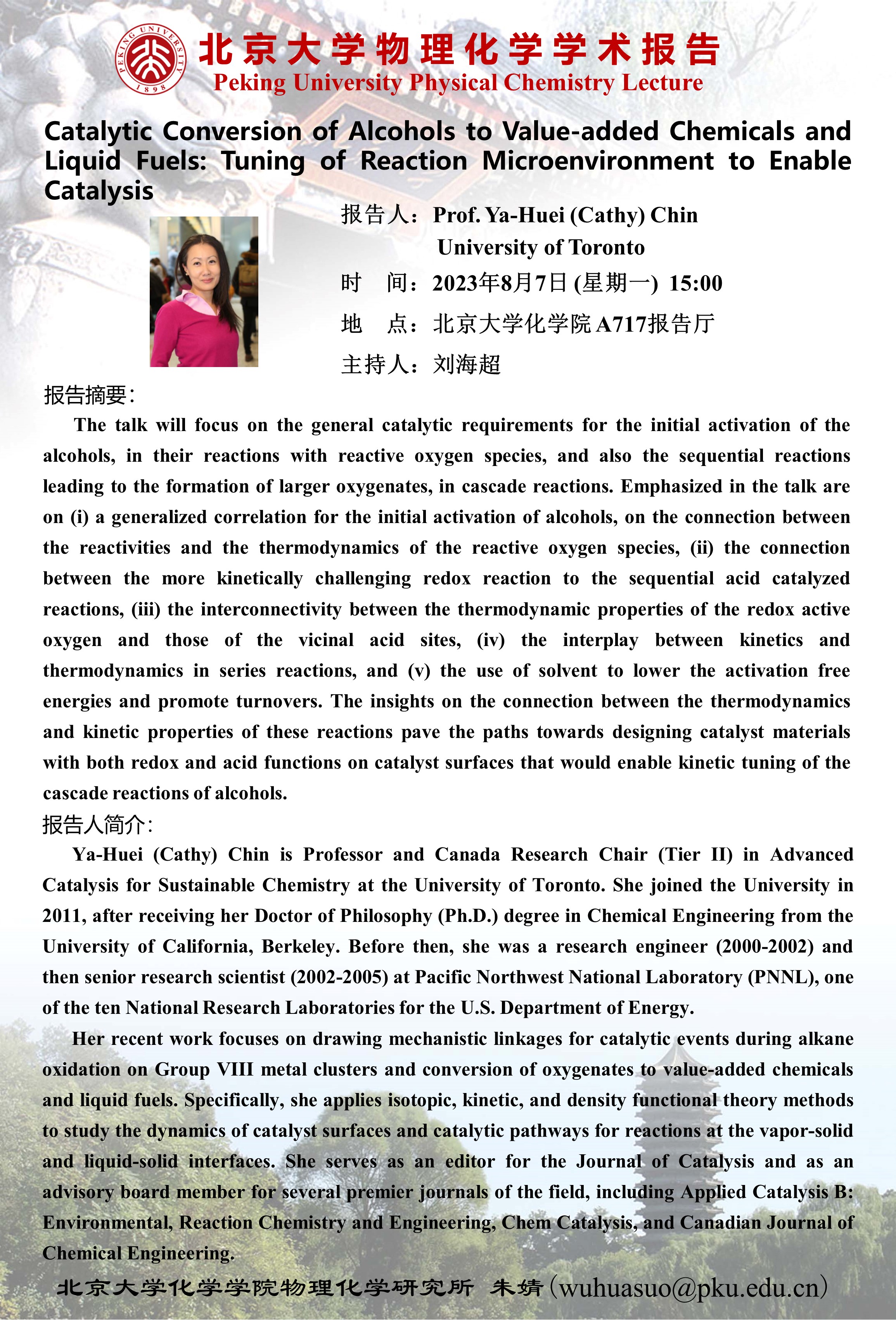Speaker: Prof. Ya-Huei (Cathy) Chin, University of Toronto
Time: 15:00 p.m., August 7, 2023, GMT+8
Venue: College of Chemistry and Molecular Engineering Room A717
Abstract:
The talk will focus on the general catalytic requirements for the initial activation of the alcohols, in their reactions with reactive oxygen species, and also the sequential reactions leading to the formation of larger oxygenates, in cascade reactions. Emphasized in the talk are on (i) a generalized correlation for the initial activation of alcohols, on the connection betweerthe reactivities and the thermodynamics of the reactive oxygen species, (ii) the connection between the more kinetically challenging redox reaction to the sequential acid catalyzed reactions, (im) the interconnectivity between the thermodynamic properties of the redox active oxygen and those of the vicinal acid sites, (iv) the interplay between kinetics and thermodynamics in series reactions, and (v) the use of solvent to lower the activation freeenergies and promote turnovers. The insights on the connection between the thermodynamics and kinetic properties of these reactions pave the paths towards designing catalyst materiak with both redox and acid functions on catalyst surfaces that would enable kinetic tuning of the cascade reactions of alcohols.
Biography:
Ya-Huei (Cathy) Chin is Professor and Canada Research Chair (Tier II) in Advanced Catalysis for Sustainable Chemistry at the University of Toronto. She joined the University in 2011, after receiving her Doctor of Philosophy (Ph.D,) degree in Chemical Engineering from theUniversity of California, Berkeley. Before then, she was a research engineer (2000-2002) andthen senior research scientist (2002-2005) at Pacific Northwest National Laboratory (PNNL), one of the ten National Research Laboratories for the U.S. Department of Energy.
Her recent work focuses on drawing mechanistic linkages for catalytic events during alkane oxidation on Group VIll metal clusters and conversion of oxygenates to value-added chemicaland liquid fuels. Specifically, she applies isotopic, kinetic, and density functional theory methods to study the dynamics of catalyst surfaces and catalytic pathways for reactions at the vapor-solidand liquid-solid interfaces. She serves as an editor for the Journal of Catalysis and as an advisory board member for several premier journals of the field, including Applied Catalysis B: Environmental, Reaction Chemistry and Engineering, Chem Catalysis, and Canadian Journal of Chemical Engineering.
Source: College of Chemistry and Molecular Engineering
